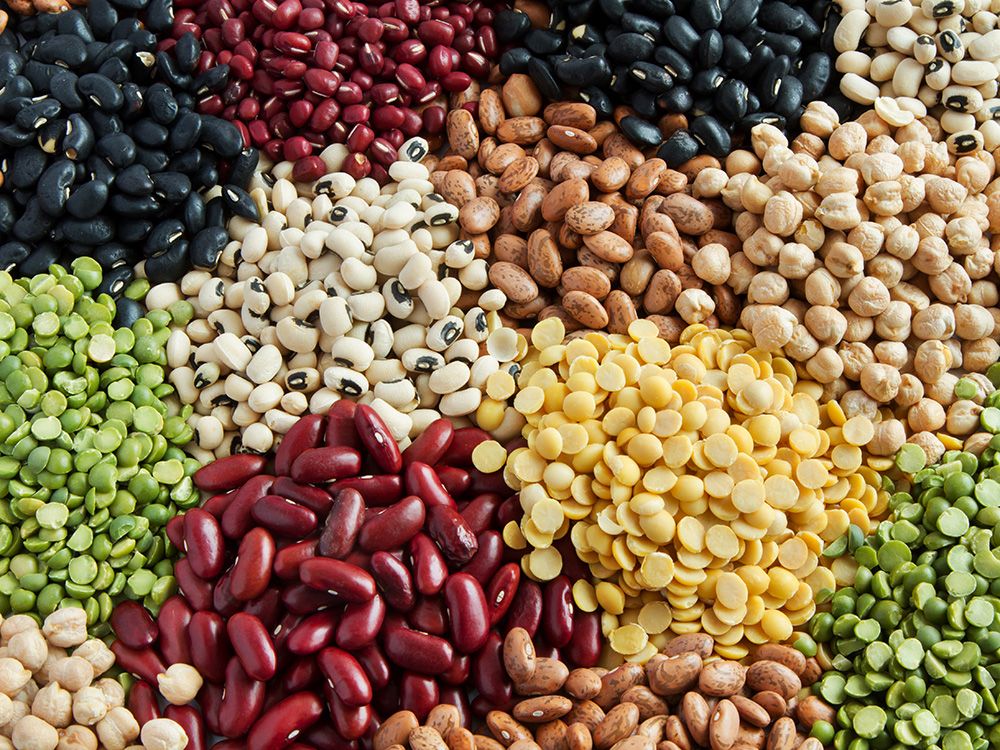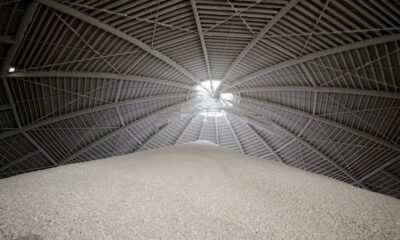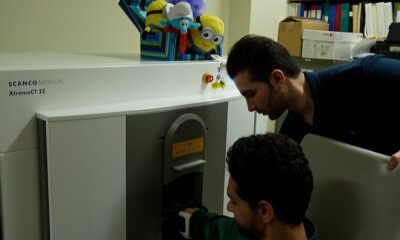Lifestyle
New Method Revolutionizes Legume Preparation for Better Digestion

Researchers at the University of Saskatchewan have developed a groundbreaking method to enhance the digestibility of legumes, addressing a common challenge faced by both consumers and food manufacturers. Led by PhD student Tolen Moirangthem, the team’s study, published in the journal Innovative Food Science & Emerging Technologies, presents a new approach using radio frequency (RF) waves that drastically reduces the time needed to prepare legumes while improving their nutritional value.
Legumes, including popular varieties like pinto beans and chickpeas, often contain antinutrients that hinder digestion. These compounds, such as oligosaccharides, contribute to the infamous reputation of beans as the “musical fruit.” Traditional methods of soaking and boiling beans can take significant time, leading to complications in commercial settings where large quantities are processed. Moirangthem notes that while soaking beans overnight at home can enhance digestibility, it poses risks in industrial environments, such as contamination by microbes.
To overcome these challenges, Moirangthem and his team explored RF heating as an alternative. This technique allows for the rapid heating of legumes, reducing their antinutrient content by an impressive 81 percent within just five minutes. Unlike conventional methods that can result in uneven heating, RF waves provide a more even and efficient approach, enhancing the overall quality of the legumes without the need for water.
The implications of this research extend beyond mere convenience. Moirangthem aims to leverage legumes as a sustainable source of plant-based protein, which could be integrated into various food products such as burger patties, protein powders, and baked goods. He emphasizes the importance of legumes in addressing global food security, especially as the world population continues to grow.
“With the global population increasing at an exponential rate, we face the challenge of ensuring that everyone has access to nutritious food,” Moirangthem states. He argues that dried peas and beans present a viable solution, being both cost-effective and non-perishable compared to meat and dairy products.
Despite the promising results, Moirangthem acknowledges the hurdles that remain. Enhancing the functional properties of plant-based proteins to match those of animal proteins is a significant challenge. Current methods often require additional processing to make plant proteins suitable for various food products, and the presence of antinutrients complicates nutrient absorption.
Moirangthem’s ongoing research aims to refine the RF heating method and investigate its potential applications in other food processing operations. He highlights the need for collaboration between academic institutions and industry to translate laboratory findings into practical solutions. “If we come together and invest in the right places, we can achieve significant advancements in food technology,” he asserts.
For home cooks looking to improve the digestibility of legumes, Moirangthem recommends traditional soaking methods. Soaking beans in water for a couple of days at room temperature can enhance their digestibility, making meals more enjoyable and nutritious. He also points to fermentation techniques used in his native India, where legume-based batters are fermented to create dishes like dosa and idli, further increasing digestibility.
While soaking beans is not strictly necessary, expert food writer Joe Yonan emphasizes its benefits in his book, Cool Beans. He describes soaking as a way to ensure more even cooking and reduce cooking time, thus making legumes more accessible to consumers.
As more people strive to incorporate legumes into their diets, particularly given the recommendation from nutrition experts to increase fiber intake, the research by Moirangthem and his team could play a crucial role in promoting the use of these nutritious foods. By developing efficient processing methods, the University of Saskatchewan researchers are paving the way for a future where legumes are a staple in diets worldwide, supporting both health and sustainability.
-

 Politics1 month ago
Politics1 month agoSecwepemc First Nation Seeks Aboriginal Title Over Kamloops Area
-

 World5 months ago
World5 months agoScientists Unearth Ancient Antarctic Ice to Unlock Climate Secrets
-

 Entertainment5 months ago
Entertainment5 months agoTrump and McCormick to Announce $70 Billion Energy Investments
-

 Lifestyle5 months ago
Lifestyle5 months agoTransLink Launches Food Truck Program to Boost Revenue in Vancouver
-

 Science5 months ago
Science5 months agoFour Astronauts Return to Earth After International Space Station Mission
-

 Lifestyle3 months ago
Lifestyle3 months agoManitoba’s Burger Champion Shines Again Amid Dining Innovations
-

 Technology4 months ago
Technology4 months agoApple Notes Enhances Functionality with Markdown Support in macOS 26
-

 Top Stories2 months ago
Top Stories2 months agoUrgent Update: Fatal Crash on Highway 99 Claims Life of Pitt Meadows Man
-

 Top Stories2 weeks ago
Top Stories2 weeks agoHomemade Houseboat ‘Neverlanding’ Captivates Lake Huron Voyagers
-

 Politics4 months ago
Politics4 months agoUkrainian Tennis Star Elina Svitolina Faces Death Threats Online
-

 Sports5 months ago
Sports5 months agoSearch Underway for Missing Hunter Amid Hokkaido Bear Emergency
-

 Politics5 months ago
Politics5 months agoCarney Engages First Nations Leaders at Development Law Summit





















